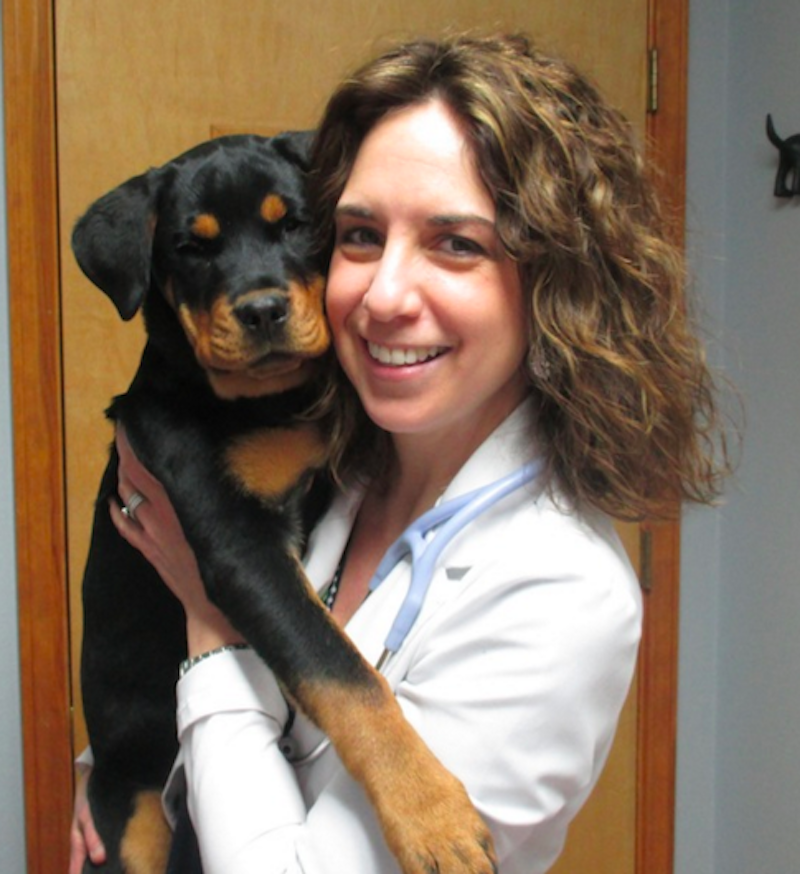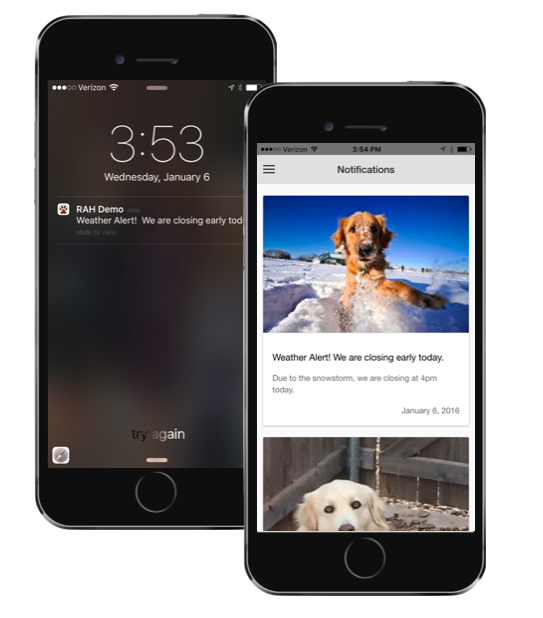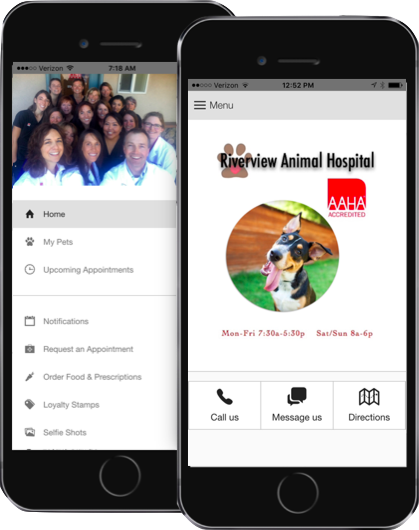
It was a lightbulb moment: Dr. Stacee Santi, a veterinarian in southwestern Colorado, saw a mobile app used by a hairstylist to instantly and directly contact clients on their smartphones. Santi knew similar application software would be perfect for her veterinary clinic and its clients – providing an effective communication channel that would promote animal health.
There must be an app for that, she figured. Santi, managing veterinarian at Riverview Animal Hospital in Durango, Colo., wanted an easy way to remind pet owners to give monthly heartworm and anti-parasitic medication, for clients to request prescription refills, and to exchange information about appointments.
But the techie vet found nothing to suit her needs. So she began building her own app. It was the birth of Vet2Pet, a software package for mobile devices that Santi describes as the first app designed and developed for veterinarians by veterinarians.
“The app is a way for me, as the veterinarian, to be the primary source of information about pet health for my clients,” said Santi, who earned her veterinary degree from Colorado State University in 1996.
From Dr. Google to Dr. Santi
In 2013, she launched a startup company to further develop and sell subscriptions to her app, a model that provides tailored software for veterinary subscribers. Vet2Pet now has about 230 veterinary clients in the United States, Canada, Portugal and Norway, and Santi aims to attract 2,500 subscribers – or about 10 percent of the country’s total veterinary market.

“Everyone hates Dr. Google, but when are we going to be better than him?” she asked. “When people know more, they do better. If you can provide information to help your clients be better pet owners, they’ll listen.”
Santi, secretary/treasurer of the Colorado Veterinary Medical Association, was guest moderator at a panel discussion for entrepreneurs with pet-related business plans during Denver Startup Week in mid-September. Also featured were Dr. Steven Dow, a CSU veterinarian and co-founder of Poudre Canyon Therapeutics, and Terry Opgenorth, founder and chief scientific officer of VetDC (See related story here).
Opgenorth, who also is vice president for CSU Ventures, the university’s tech-transfer affiliate, noted that successful pet-related startups are tapping into the “pet humanization” trend, which has seen animal owners during the past few decades increasingly viewing pets as family members. In keeping with this ethic, owners are more attuned to pet health and are even willing to curb their own discretionary spending to support pet well-being.
The American Pet Products Association reported in March that overall spending in the pet industry totaled a record $60.28 billion in 2015. This spending was in the market categories of pet food, supplies, over-the-counter medications, veterinary care, animal purchases and services.
A better steward of patient health
Santi, who calls pets and technology “two of my favorite things,” said this appetite for products and services extends to information about pet health. Who better to supply that information than a family’s veterinarian, who often is in the advantageous position of trusted adviser?

She has found Vet2Pet push notifications – information blasts direct from the clinic to clients’ handheld devices – to be far more effective than printed newsletters or email. Indeed, push notifications have a 90 percent open rate, compared to a 15 percent open rate for mass email.
That makes veterinarians better stewards of patient health, Santi noted.
As she has developed Vet2Pet, Santi has modified the app to enhance communication flow between pet owners and their veterinarians. The app now provides a virtual loyalty card that gives a clinic’s clients rewards for their cumulative spending and compliance with veterinary instructions. Even Santi was surprised by her clinic’s revenue increases after the feature launched.
“My clients went crazy,” she said. “It was like giving a blood transfusion to the practice.”
One of the most persuasive signs of the app’s effectiveness came when Santi sent a push notification asking clients for their help in finding a Boston terrier whose owner was distraught after the dog had been missing for a full two weeks. Within 30 minutes, the little dog was found behind a local Taco Bell and reunited with its owner.
“She was so grateful,” Santi said, “and she started coming to our clinic.”